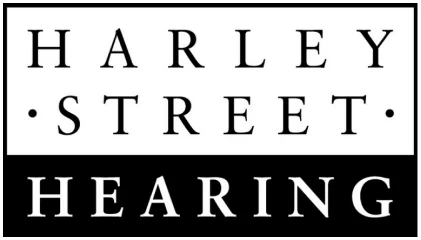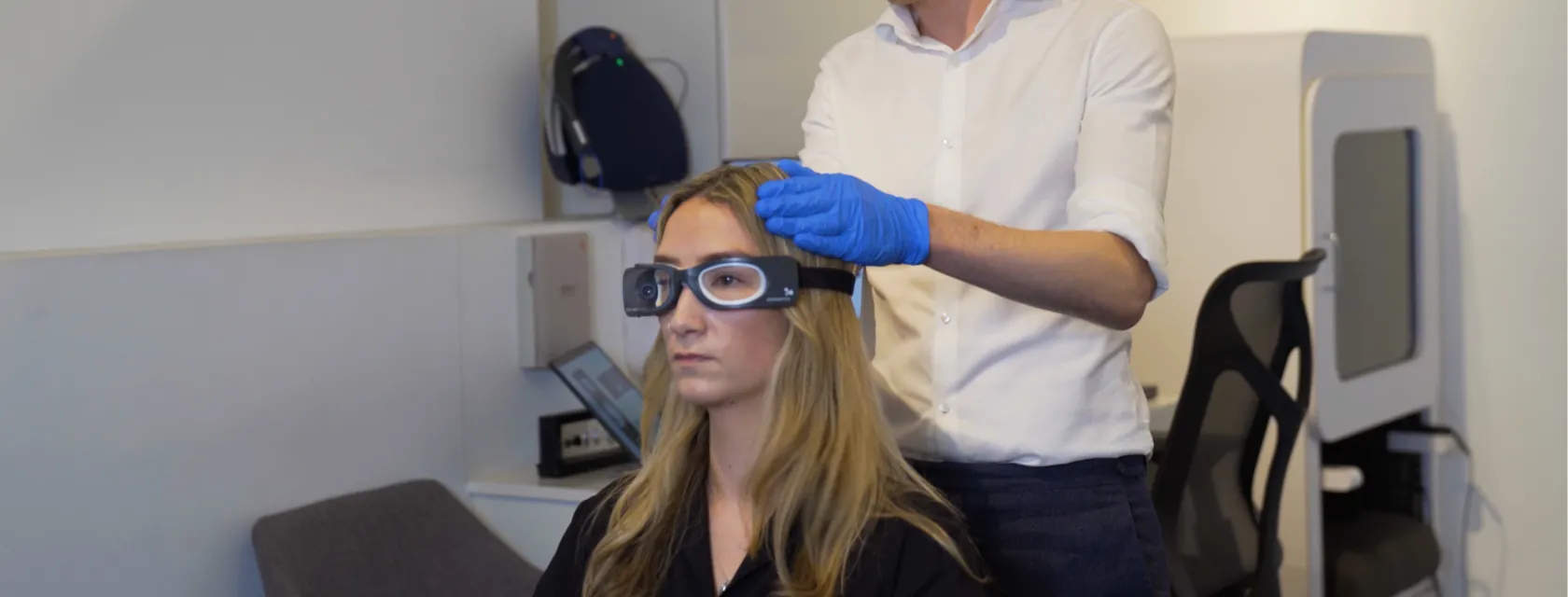At our Balance Clinic, located at 127 Harley Street, we specialise in assessing individuals experiencing dizziness, vertigo, nausea, or balance problems. Using the latest testing methods delivered by our expert audiologists, we aim to help patients improve their quality of life. We work closely with ENT specialists to provide comprehensive care and coordinated treatment.
Individuals experiencing symptoms of a balance disorder should consult an ENT specialist for a referral to our clinic, or they may visit their GP. For BPPV, we accept self-referrals.
Our experienced audiologists understand the complexity of these conditions and provide prompt, thorough assessments to support effective treatment decisions.
Why choose Harley Street Hearing’s Balance Clinic?
- Fast access to appointments with our audiologists to help avoid delays in diagnosis
- Clear, detailed reports delivered promptly to support clinical decisions between our audiologists and ENT specialists
- Access to advanced testing not routinely available in many healthcare settings
- A team of specialists working together to provide an accurate diagnosis and personalised care for patients
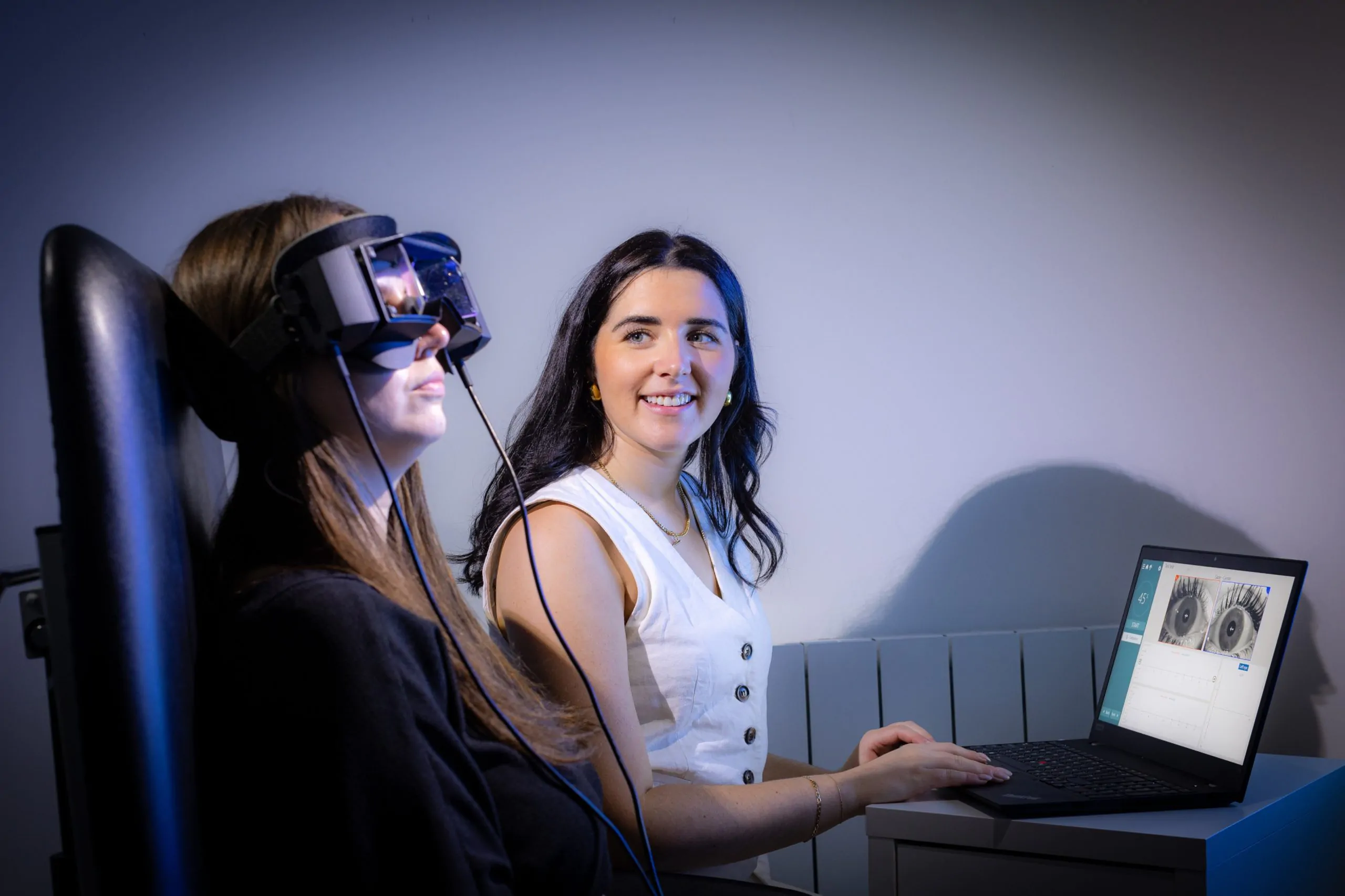
Diagnostics
We offer a full range of balance and hearing tests, using both the latest technology and proven traditional methods, including:
- Video Head Impulse Testing (vHIT)
- Ocular VEMPs (oVEMPs) and Cervical VEMPs (cVEMPs)
- Caloric Irrigation Testing
- Positional Testing
- Videonystagmography (VNG)
Conditions
Our highly experienced audiologists regularly assess and treat patients with the following conditions. Patients can choose to self-pay or use private medical insurance for tests and/or treatment.
If you are experiencing symptoms of BPPV, you can self-refer directly for assessment and treatment. No referral from a GP or ENT is required. Our audiologists will perform specific positional tests to confirm the diagnosis. Contact us here or call us on 020 7486 1053 to book an appointment.
You may opt to self-pay for BPPV treatment or use private medical insurance. Please be advised that insurance coverage is subject to your provider’s policies and may vary.
Patient journey
Consultation
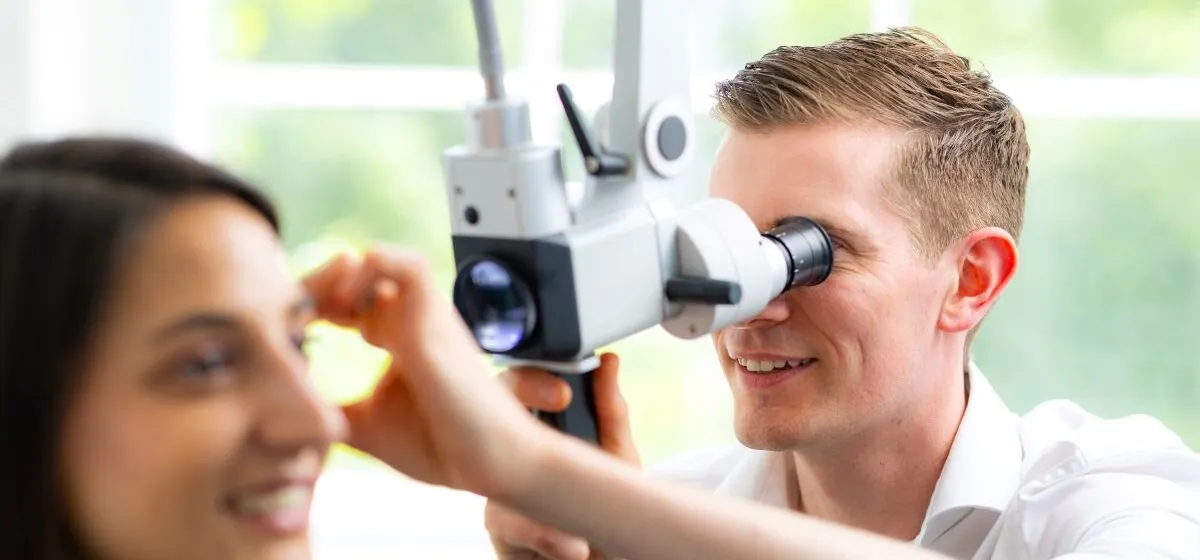
Balance testing
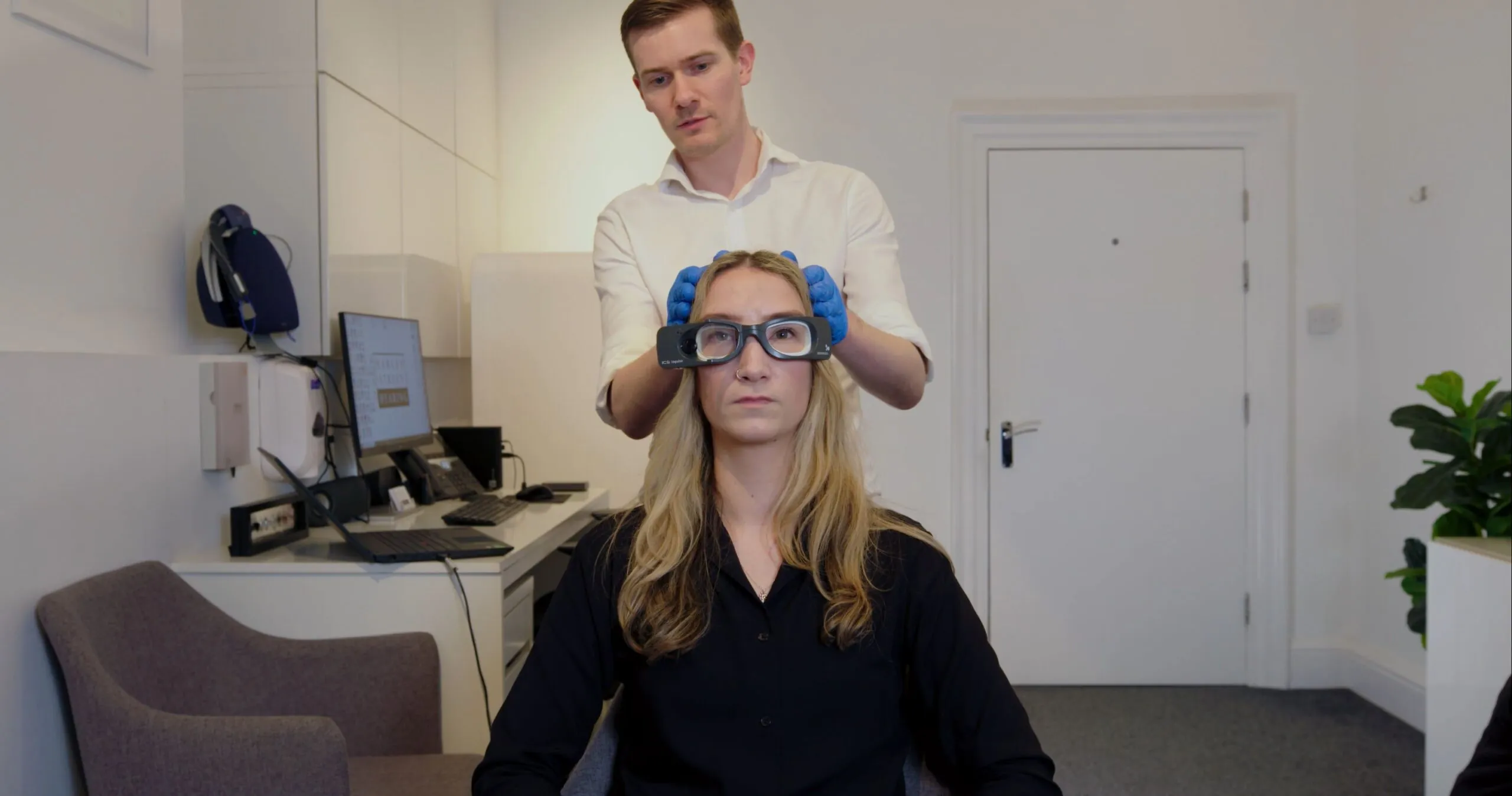
Results
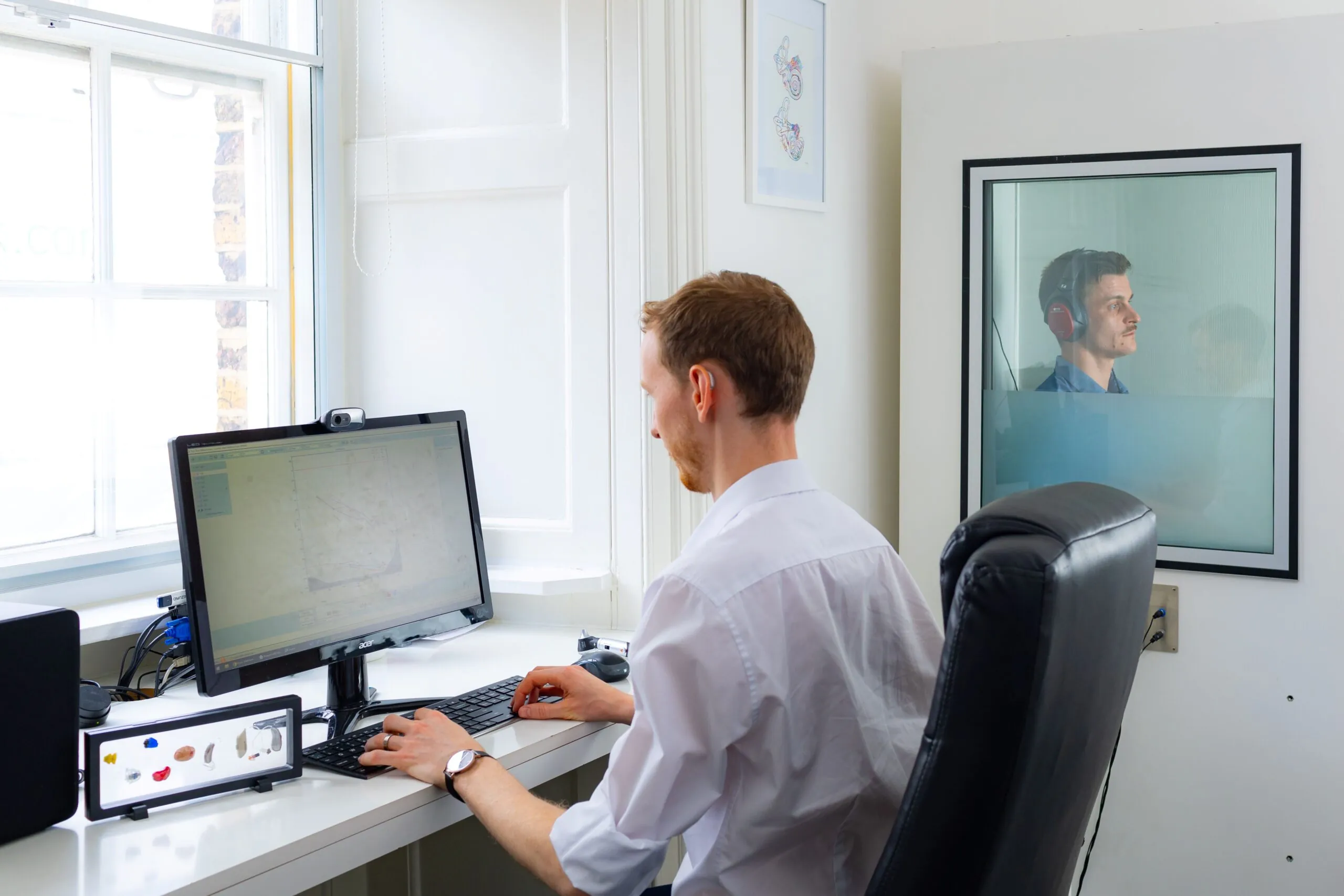
Treatment

Begin your journey
How to refer a patient
For healthcare professionals, we offer a single point of contact to refer patients with balance symptoms. Simply download our referral form using the button below and send it to [email protected]

Providing the highest standards of care
Balance Clinic
Yes, patients have the option to self-pay for these conditions.
Vertigo is a hallmark symptom of Meniere’s disease, but some patients may initially experience hearing loss, tinnitus, or ear fullness before vertigo occurs.
Vertigo can be triggered by head movements (as in BPPV), infections or inflammation of the inner ear (vestibular neuritis), migraines, Meniere’s disease, head injury, or neurological conditions.
Tinnitus itself does not usually cause dizziness, but the conditions that cause tinnitus (such as Meniere’s disease or vestibular disorders) can also cause dizziness or vertigo.
Vestibular neuritis primarily affects balance but in cases of labyrinthitis may also present with hearing loss and tinnitus.
Dizziness is more commonly provoked by the causes listed above but if the ear canal is completely blocked by wax, this could cause some feelings of pressure and disruption within the inner ear.
Vestibular migraines are caused by changes in brain activity affecting balance and sensory processing.
Yes, both stress and anxiety can exacerbate pre-existing balance disorders.
Your audiologist will determine how long vestibular rehabilitation may take, as recovery times vary for each individual depending on their specific condition.
Yes, pre-authorisation should be obtained before the appointment.
Self-referral is accepted for BPPV only.
